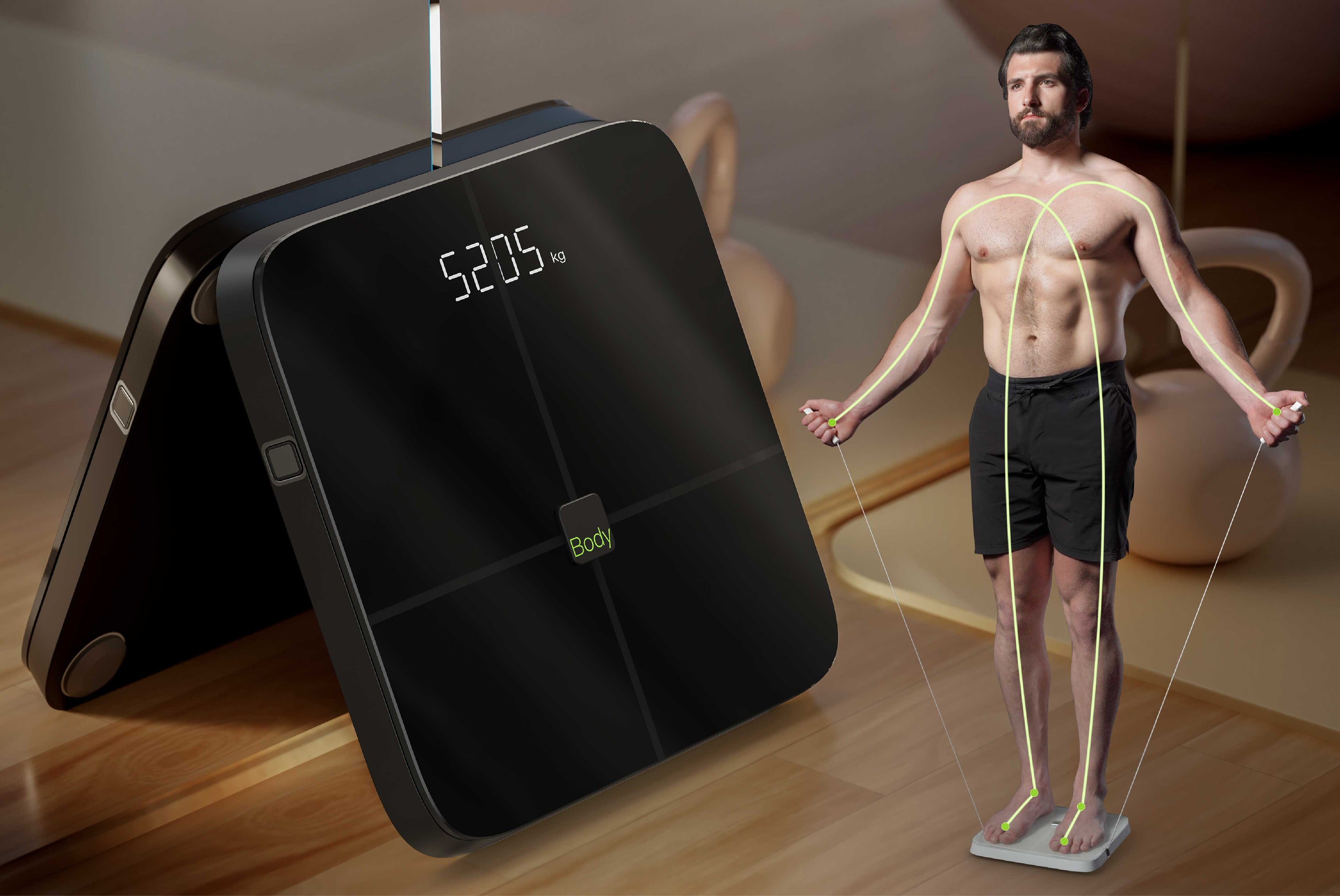Body fat scales,also known as body composition scales, have become increasingly popular tools for individuals seeking to monitor their health and fitness progress. From tracking body fat percentage to muscle mass, these scales offer valuable insights into one's overall physical composition. However, questions often arise regarding their accuracy and reliability.
In this article, we delve into the functionality of body fat scales, and their accuracy in measuring various body components.
How body fat scales work?
Body fat scales typically utilize bioelectrical impedance analysis (BIA) to measure body composition. They send a low-level electrical current or currents in different frequencies through the body and analyze the resistance encountered, which varies based on the amount of fat, muscle, and water present.

Are they accurate?
All 4-electrode scales are not accurate, and most 8-electrode scales are not very accurate.
4-Electrode Scales (the scales without handles)
These scales send a low-level current to the lower body (legs), and use formulas to estimate body compositions, such as body fat rate (BFP), muscle mass, lean body mass, etc. A lot of studies have showed this method produced inaccurate estimates.
In a 2016 study by Consumer Reports, six body fat scales were tested against lab-based machines. The results revealed that 4-electrode scales often provided inaccurate estimates of body fat percentage (BFP). The most accurate readings were off by approximately 21%, while the least accurate deviated by about 34%. Some studies showed even greater inaccuracies, with deviations exceeding 50%.
8-Electrode Scales with 1 Handle
Utilizing eight electrodes on the feet and hands, the scales with 1 handle measure the entire body. However, due to technical constraints, they can only use 2 currents at low and medium frequencies to measure extracellular fluid. Without measuring intracellular fluid, they deliver the results with an accuracy range typically around 80%.
8-Electrode Scale with 2 Handles
These advanced scales divide the body into 5 segments and measure extracellular and intracellular fluids separately using low, medium, and high-frequency currents. Lab-based devices like InBody 370, 570, 770, 970 have been extensively studied and shown a correlation of up to 97% with gold standard DEXA scans. In addition to medical-grade body composition analyzers like InBody 370, BodyPedia Body Composition Scale utilizes the same technology. And BodyPedia Body Composition Scale is also the only portable scale employs such advanced technology. Notably, Body Composition scale exhibits a 99% correlation with InBody 370, even surpassing it in certain measurements like body measurements (chest circumference, waist circumference, hip circumference, arm circumference, thigh circumference and neck circumference).

Why use body fat scales?
Body fat vs. BMI
Understanding body fat percentage (BFP) is crucial because it provides a more comprehensive assessment of an individual's overall health and fitness compared to BMI (Body Mass Index) alone. While BMI is a useful measure for assessing weight relative to height, it does not differentiate between fat mass and lean mass (muscle, bone, and organs). As a result, individuals with a high muscle mass or athletes may have a higher BMI, indicating overweight or obesity, despite having a low body fat percentage.
On the other hand, body fat percentage directly quantifies the proportion of fat mass in relation to total body weight. High levels of body fat are associated with increased health risks, such as cardiovascular disease, diabetes, and metabolic syndrome. Conversely, maintaining a healthy body fat percentage is linked to improved metabolic health, reduced risk of chronic diseases, and overall well-being.
By understanding one's body fat percentage, individuals can better assess their risk factors for various health conditions and tailor their fitness and nutrition plans accordingly. This personalized approach allows for more effective goal-setting and monitoring of progress towards achieving a healthy body composition. Therefore, while BMI is a valuable screening tool, understanding body fat percentage provides a more accurate reflection of overall health and fitness status.
Know your body and make targeted fitness plans
The advanced eight-electrode body fat scale not only provides comprehensive data on body fat percentage and muscle mass but also offers detailed analysis of different body segments, assisting users in creating targeted fitness plans. For instance, some users may discover through the scale that their overall muscle mass meets standards, but there's a deficiency in upper body muscle mass. In such cases, targeted upper body strength training exercises like weightlifting or plank variations are recommended. Similarly, if a user finds adequate overall muscle mass but insufficient lower body muscle mass, it's advisable to consider strengthening lower body exercises. Additionally, in such scenarios, it's essential to assess the risk factors like diabetes and consider seeking medical examination if necessary.
How to use body composition analyzers and eight-electrode body fat scales for optimal results?
- Take your test in the morning. Before testing, use the bathroom, avoid eating, and stand upright for roughly 5 minutes. If morning testing isn't possible, ensure it's at least two hours post-meal. Consistency is key: try to test under the same conditions and at the same time daily for reliable results. (Read more)
- Regularly track progress and adjust fitness plans as needed based on accurate measurements.
In conclusion, while the accuracy of body fat scales may vary, advanced models like BodyPedia Body Composition Scale offer highly precise measurements, enabling individuals to monitor their body composition effectively and make informed decisions about their health and fitness journey.


